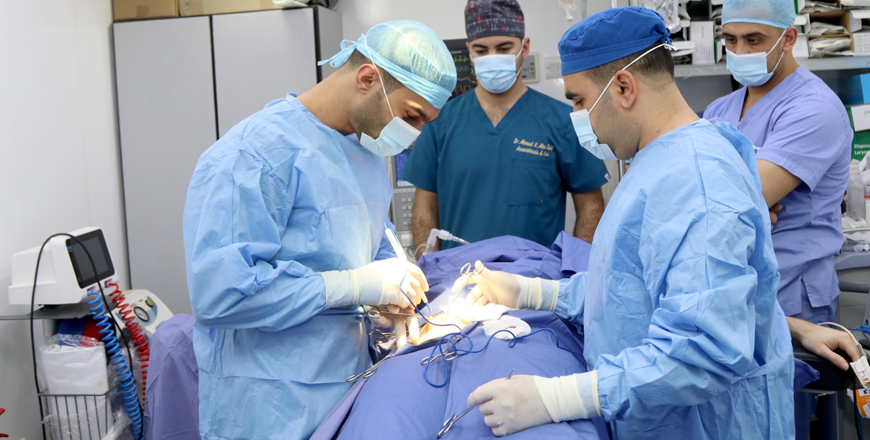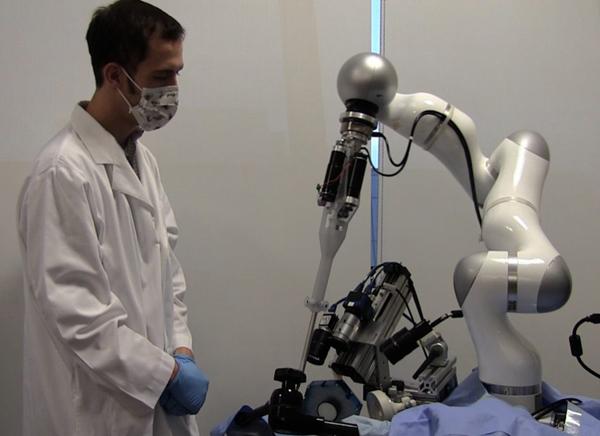You are here
Presentation held on Enhanced Recovery after Surgery
By Saeb Rawashdeh - Jul 04,2022 - Last updated at Jul 04,2022

Nicolas Demartines
AMMAN — The benefits of Enhanced Recovery after Surgery (ERAS) and the challenges to implement the protocol in hospitals were presented on the Farah Medical Campus on Monday.
The presentation titled “Enhanced Recovery after Surgery” was jointly organised by Farah Medical Campus and the Swiss Jordanian Business Club.
Professor and Chair of Surgery at University Hospital CHUV in Lausanne, Nicolas Demartines is one of the experts who implemented ERAS and he has been lecturing around the world about the surgical protocol, said Ziad Sharaiha, founding and honorary president of Arab G.I. Society during the event.
“The hospital should be so nice that when the patients come in they already feel better,” said Demartines, noting that the main problem about implementation of the ERAS protocol in hospitals, across a number of disciplines is when specialists do not follow up on ERAS protocol.
ERAS implementation team that supports hospitals and departments often notices that many surgeons wrongly think that they are applying ERAS principles but in reality they have no outcome on real length of stay and readmission rate, Demartines said, adding that auditing is crucial to check the proper medical protocols.
“The patient after an operation can’t eat and drink because of pain, has low mobility and some surgical complications may take place,” Demartines said, adding that ERAS has been implemented in Europe, Asia and the Americas.
Surgeons want to reduce complications that may follow the post-operative phase, Demartines said, noting that other surgical specialties are adopting ERAS practice, for example, liver, pancreas, and upper gastrointestinal surgery, or urology and gynaecology.
ERAS is multimodal pathway that reduces stress, morbidity and improves recovery of the patient, Demartines said, adding that doctors need data as ERAS has to be evidence based.
“We have a tailored standardisation which consists of multidisciplinary team, systematic implementation, guidelines and audit, to be sure that you know what you are doing,” Demartines noted.
“You measure your success by the improvement of you compliance from 40 per cent to 70 per cent, for instance,” he said.
The benefits of ERAS are: Decrease of surgical site infections, assess risk factors for complication, synergy with laparoscopy — a type of surgical procedure that allows a surgeon to access the inside of the abdomen — and decrease the workload for nurses in addition to being cost effective, Demartines concluded.
Related Articles
AMMAN — The Jordanian field hospital in Nablus performed a complex surgical procedure on a 22-year-old patient on Sunday.Commander of the ho
AMMAN — A judicial panel specialised in medical malpractice cases at the Amman Magistrate’s Court has convicted four doctors of manslaughter
Surgery, a profession filled with great hands, quick minds and big egos, may have a new star in its midst.The Smart Tissue Autonomous Robot














